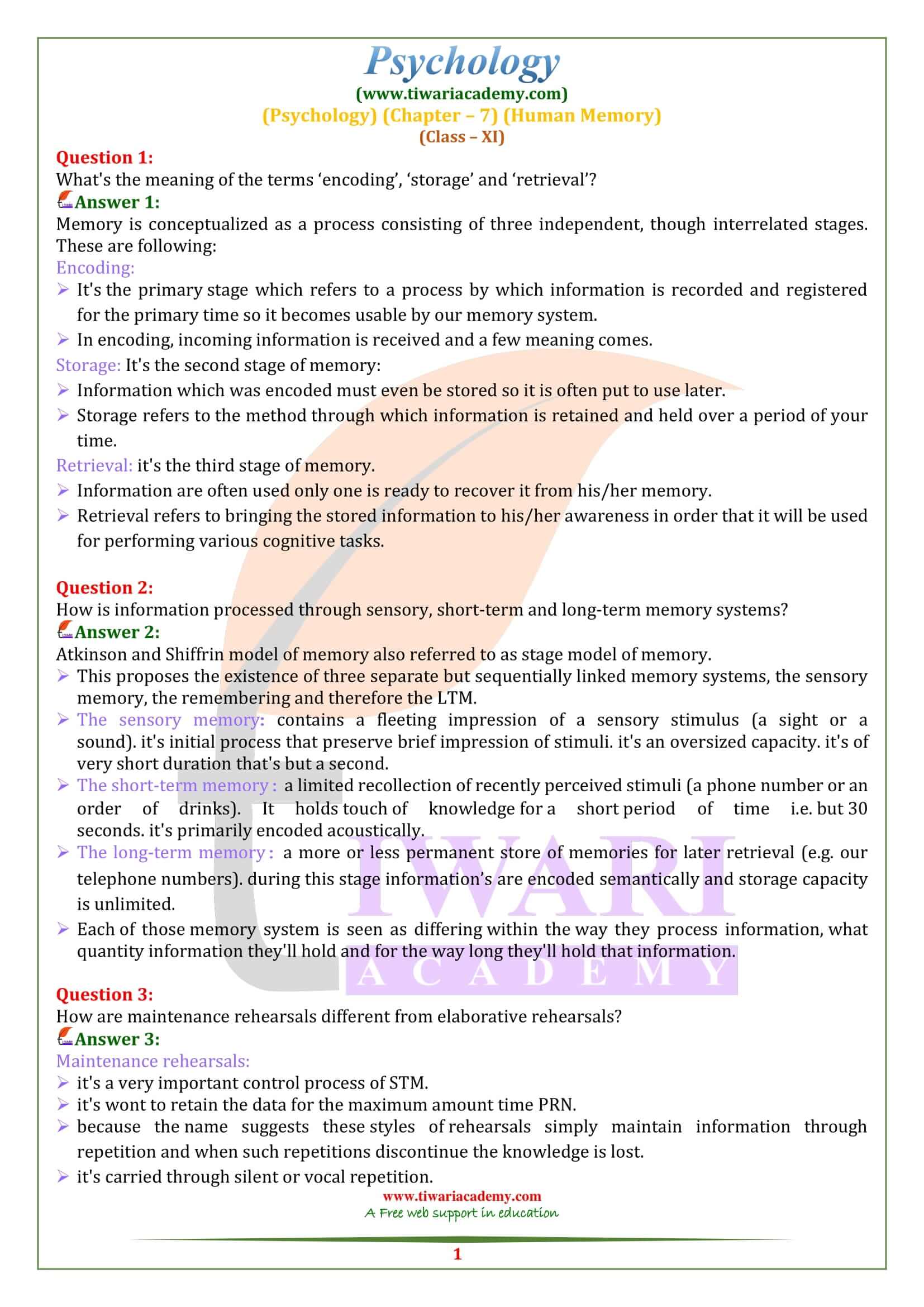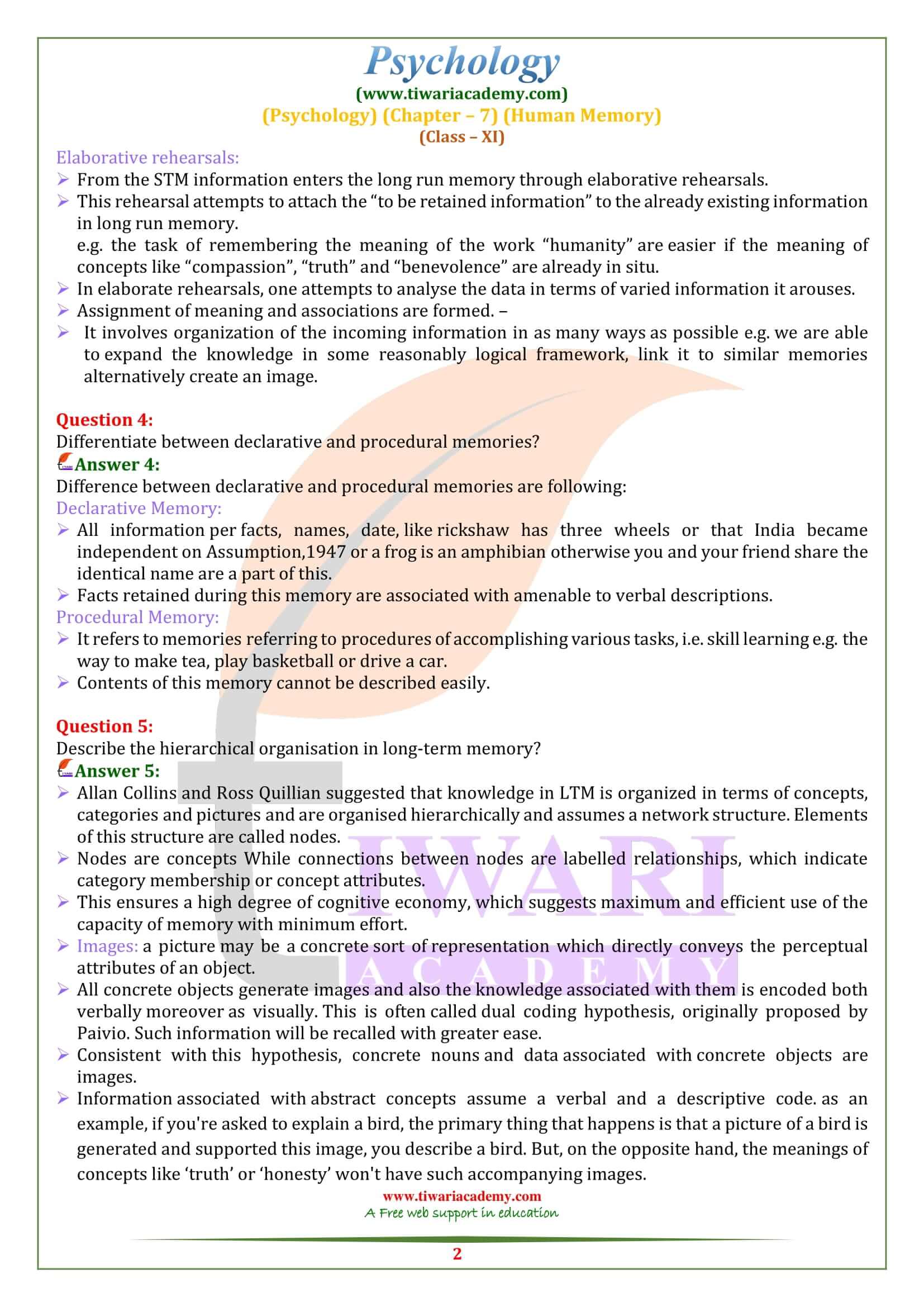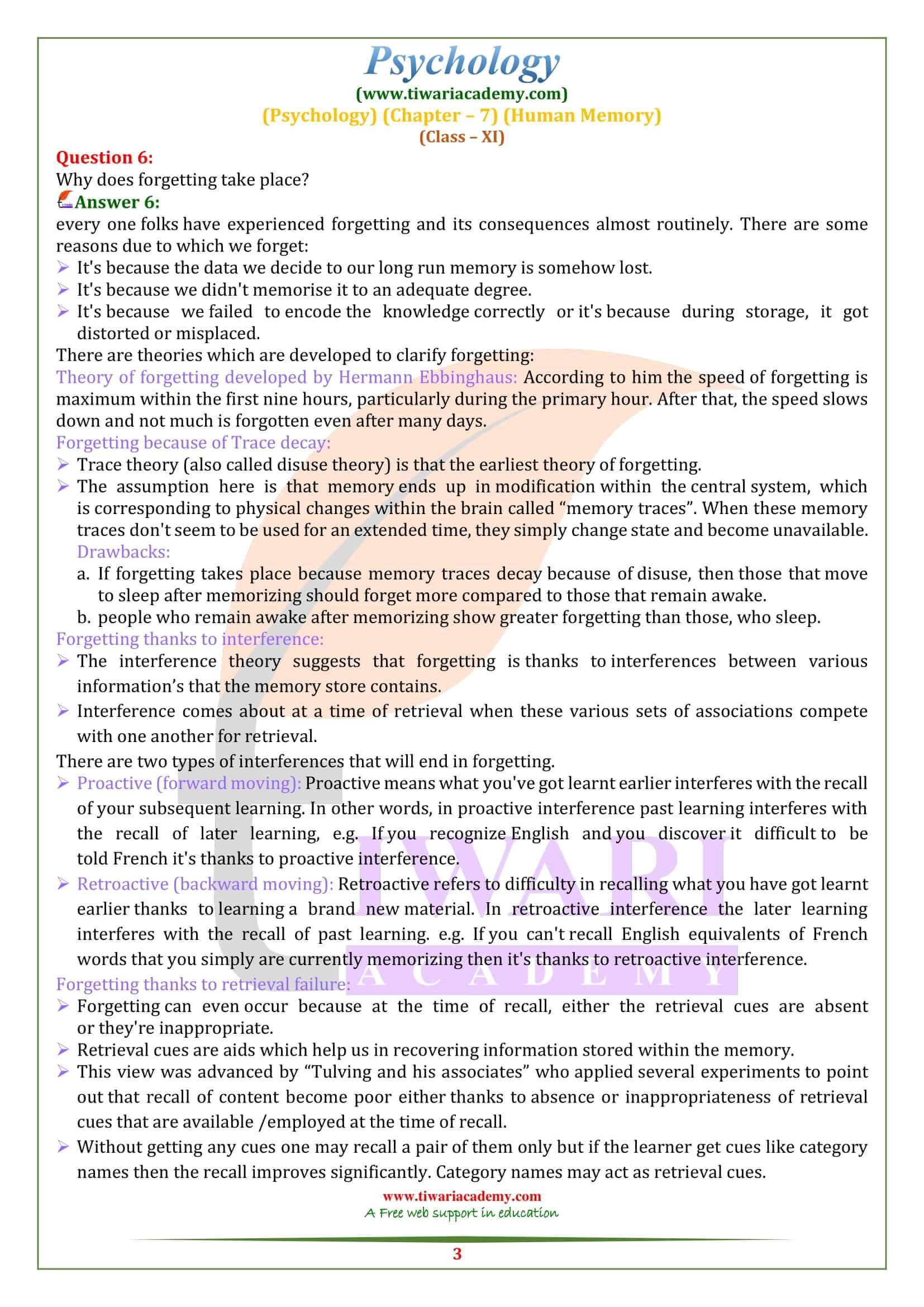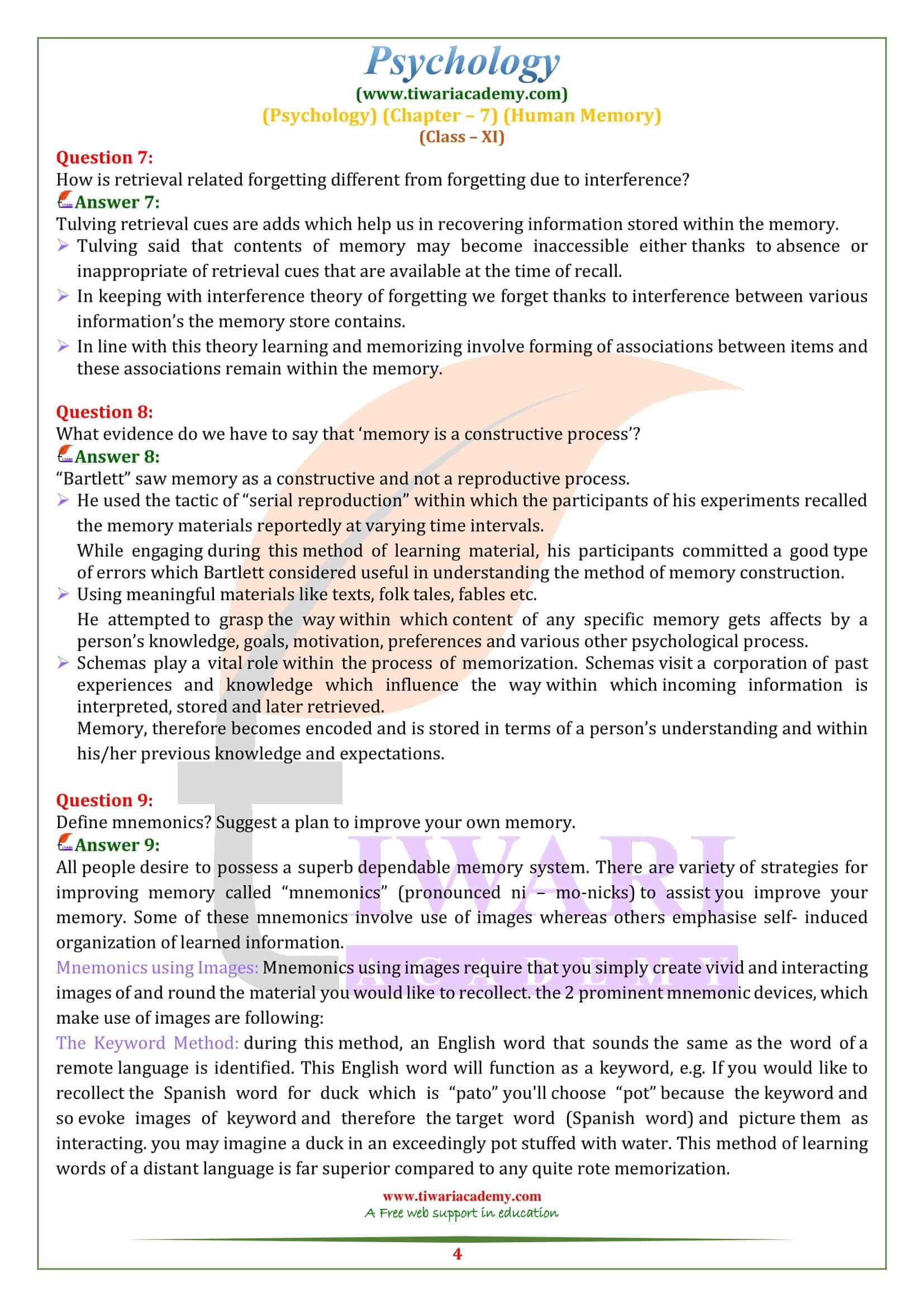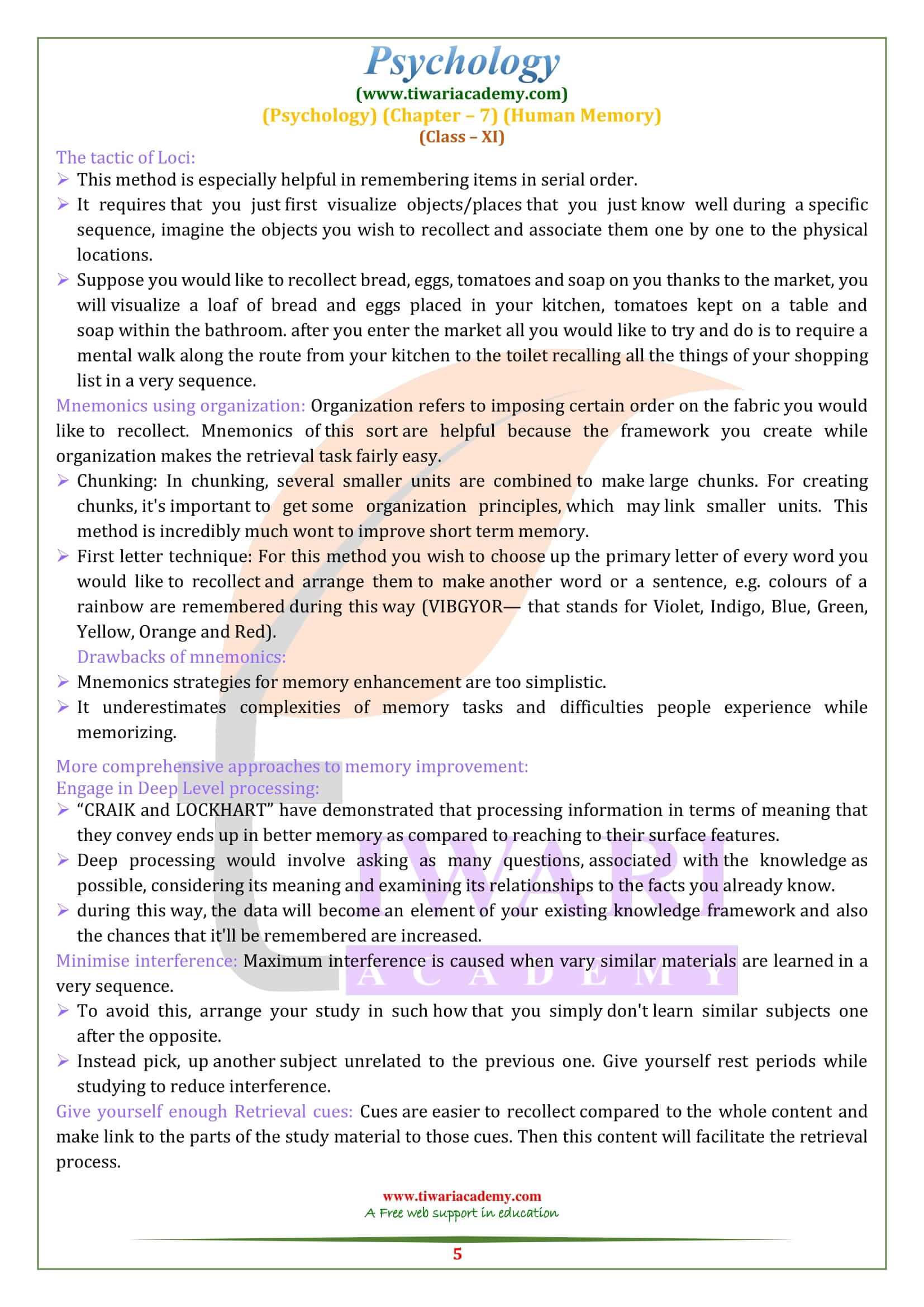NCERT Solutions for Class 11 Psychology Chapter 7 Human Memory in English Medium updated for CBSE session 2025-26. Class 11 Psychology chapter 7 solution provides important extra question answers confined to NCERT along with MCQ answers and explanation.
NCERT Solutions for Class 11 Psychology Chapter 7
Class 11 Psychology Chapter 7 Human Memory Question Answers
What’s the meaning of the terms ‘encoding’, ‘storage’ and ‘retrieval’?
Memory is conceptualized as a process consisting of three independent, though interrelated stages. These are following:
Encoding:
It’s the primary stage which refers to a process by which information is recorded and registered for the primary time so it becomes usable by our memory system.
In encoding, incoming information is received and a few meaning comes.
Storage: It’s the second stage of memory:
Information which was encoded must even be stored so it is often put to use later.
Storage refers to the method through which information is retained and held over a period of your time.
Retrieval: It’s the third stage of memory.
Information are often used only one is ready to recover it from his/her memory.
Retrieval refers to bringing the stored information to his/her awareness in order that it will be used for performing various cognitive tasks.
How is information processed through sensory, short-term and long-term memory systems?
Atkinson and Shiffrin model of memory also referred to as stage model of memory.
This proposes the existence of three separate but sequentially linked memory systems, the sensory memory, the remembering and therefore the LTM.
The sensory memory:
Contains a fleeting impression of a sensory stimulus (a sight or a sound). it’s initial process that preserve brief impression of stimuli. it’s an oversized capacity. it’s of very short duration that’s but a second.
The short-term memory:
A limited recollection of recently perceived stimuli (a phone number or an order of drinks). It holds touch of knowledge for a short period of time i.e. but 30 seconds. it’s primarily encoded acoustically.
The long-term memory:
A more or less permanent store of memories for later retrieval (e.g. our telephone numbers). during this stage information’s are encoded semantically and storage capacity is unlimited.
Each of those memory system is seen as differing within the way they process information, what quantity information they’ll hold and for the way long they’ll hold that information.
How are maintenance rehearsals different from elaborative rehearsals?
Maintenance rehearsals:
- It’s a very important control process of STM.
- It’s wont to retain the data for the maximum amount time PRN.
- Because the name suggests these styles of rehearsals simply maintain information through repetition and when such repetitions discontinue the knowledge is lost.
- It’s carried through silent or vocal repetition.
Elaborative rehearsals:
- From the STM information enters the long run memory through elaborative rehearsals.
- This rehearsal attempts to attach the “to be retained information” to the already existing information in long run memory.
e.g. the task of remembering the meaning of the work “humanity” are easier if the meaning of concepts like “compassion”, “truth” and “benevolence” are already in situ. - In elaborate rehearsals, one attempts to analyse the data in terms of varied information it arouses.
- Assignment of meaning and associations are formed.
- It involves organization of the incoming information in as many ways as possible e.g. we are able to expand the knowledge in some reasonably logical framework, link it to similar memories alternatively create an image.
Differentiate between declarative and procedural memories?
Difference between declarative and procedural memories are following:
Declarative Memory:
All information per facts, names, date, like rickshaw has three wheels or that India became independent on Assumption,1947 or a frog is an amphibian otherwise you and your friend share the identical name are a part of this.
Facts retained during this memory are associated with amenable to verbal descriptions.
Procedural Memory:
It refers to memories referring to procedures of accomplishing various tasks, i.e. skill learning e.g. the way to make tea, play basketball or drive a car.
Contents of this memory cannot be described easily.
